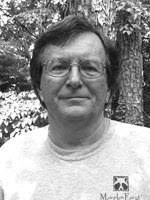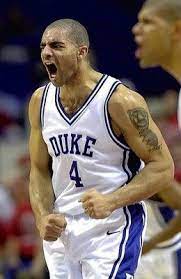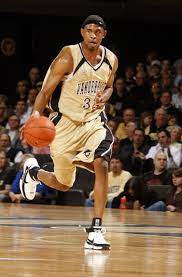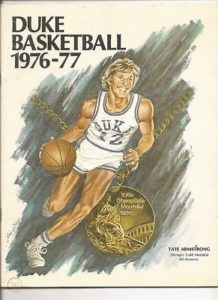The NBA Finals date back to 1947 (when they were known as the Basketball Association of America Finals) and the very 1st NCAA tourney was held in 1939. Olympic basketball competition is even older: it debuted as a demonstration event in 1904 and the men’s version became a medal sport in 1936, with the women finally getting their chance to go for the gold in 1976. The United States has dominated Olympic basketball competition from the start: the men have won 16 gold medals in the 19 tournaments they have participated in during the past 85 years, while the women have won 9 gold medals in the 11 tournaments in which they have competed during the past 45 years. HoopsHD’s Jon Teitel continues his coverage by chatting with Jim Sumner (columnist for Go Duke: The Magazine and Duke Basketball Report) about Grant Hill winning back-to-back NCAA titles and a gold medal.
Grant was born in Dallas/raised in Virginia with a mother who wanted him to attend Georgetown and a father who wanted him to attend North Carolina: what made him choose Duke? Well, his parents let him make his own decision. Great basketball, great academics, and he knew that he would start immediately. He and Coach Krzyzewski hit it off immediately. Given his father Calvin’’s background, Grant had a pretty grounded view of big-time sports and was never interested in being just a jock.
He won back-to-back titles in 1991/1992:
In the 1991 Final 4 he scored 11 PTS in a 2-PT win over defending champion/undefeated/8-PT favorite UNLV: I know that it was not a revenge game for Grant since he did not play on the team that lost by 30 PTS to the Rebels in the 1990 title game, but how did they pull off 1 of the biggest upsets in tourney history? Duke lost three pretty good starters from that 1990 team (Alaa Abdelnaby/Phil Henderson/Robert Brickey), but Christian Laettner/Bobby Hurley/Billy McCaffrey/Greg Koubek/Brian Davis/Thomas Hill/Crawford Palmer did return. Coach K convinced his team that UNLV had been so dominant that they would not know how to win a close game: “Keep it close and we will win in the stretch”. Duke doubled Larry Johnson, daring George Ackles to hurt them, and the gamble paid off. Grant did a great job on 1st-team All-American Stacey Augmon, holding him to six points (10.5 below his season average). Grant scored an aggressive, athletic basket off the opening tap and that set a tone: last year was last year and Duke was not going to be intimidated this year.
In the 1992 Elite 8 with Duke trailing Kentucky by 1 PT with 2.1 seconds left in OT, he heaved an inbounds pass 75 feet to Christian Laettner for the game-winning jumper at the buzzer (www.youtube.com/watch?v=Uo3G2MfOYeA): what are your memories of 1 of the greatest college basketball games/plays of all time? Grant had tried a similar pass at the end of the Wake Forest game a few weeks earlier and thrown a hook that sailed out of bounds: second time is the charm, I suppose! Obviously, it did not look good for Duke with 2.1 seconds left: I still cannot believe that UK did not guard him on the inbounds pass. It was a well-designed, well-executed play by two great players who had proverbial ice-water in their veins. Let me share an anecdote from that 1992 season that says a lot about Grant. Hurley broke his right foot in the middle of the season and missed three weeks. Grant took over at the point, despite having never played that spot. His first game at point was a road win over Shaq and LSU. Around the time Hurley came back, Grant hurt his own foot and missed several weeks. Hill’s roommate/classmate/good friend Tony Lang had started at power forward while Grant was playing point and then at power forward while Grant was out. Lang was playing well and helping his team win games, so when Grant was cleared to play he went to Krzyzewski. He suggested that since Lang was playing so well, why not let him continue to start and bring me off the bench: one of the best players in college basketball suggesting to his coach that it might help the team for him to come off the bench?! Hill did indeed come off the bench…up until the title game, when Brian Davis was injured and Lang and Hill both started.
After winning his 2nd straight NCAA title in 1992 he was selected to a team of college stars (including Bobby Hurley/Penny Hardaway/Chris Webber) who scrimmaged the “Dream Team” to help them prepare for the Olympics:
On June 24th he had a 62–54 win over the Dream Team (Coach Mike Krzyzewski later said that USA head coach Chuck Daly “threw the game” through such tactics as intentionally limiting Michael Jordan’s minutes and making unusual substitutions to teach the NBA players a lesson), and in a rematch the following day the Olympians won handily: did they just come out and try to destroy the college kids after learning the hard way that they were not unbeatable? I do not recall either of these scrimmages being heavily publicized at the time. It probably became a bigger deal in hindsight.
Despite not having Laettner/Hurley in 1994, Hill led Duke to the title game and had 12 PTS/14 REB in a 4-PT loss to Arkansas: how close did he come to becoming 1 of the few college basketball players to ever win 3 titles? Hill really carried that team to the title game. He led Duke in scoring and assists while playing a point-forward position. He helped shut down Purdue’s national POY (Glenn Robinson) in the Elite Eight: Robinson averaged around 30 PPG that year but Hill/Lang held him to just 13 PTS/6-22 FG. Hill was the best player on the floor in the semifinal win over Florida: 25 PTS/6 REB/5 AST. Duke led Arkansas by 10 points early in the second half of the title game but was really thin that season; 7 players got the bulk of the playing time and Arkansas was famous for its deep bench that allowed it to play “40 Minutes of Hell”. Grant did not shoot well against Arkansas: some of that came from trying to check 250-pound tourney MOP Corliss Williamson, who was a great college player. I think that Arkansas wore Duke down late and the better team won.
He graduated as the 1st ACC player ever with 1900+ PTS/700 + REB/400 + AST/200 + STL/100 + BLK: where does he rank among the best all-around players in conference history? Pretty high. Players at his level tend not to stick around for four years anymore. When you combine his versatility, his big-game chops, and the success of his team, he certainly ranks among the ACC’s best players.
After being drafted 3rd overall by Detroit in 1994, he was named NBA co-ROY with Jason Kidd and became the 1st rookie in any of the 4 major pro sports leagues to lead All-Star fan voting: how was he able to make such a smooth transition from college to the pros? Well, he was pretty good!! He was an elite athlete who played with/against the best players in college basketball for four years and was coached by one of the great coaches in the game, but he was not one to rest on his laurels. He was not a great long-range shooter in college but once he hit the pros he sought out the tutelage of Duke alum Chip Engelland (Class of 1983), a well-known shooting instructor. Hill never became a great shooter in the Reggie Miller category but he improved enough that defenders had to respect his shot, which made it easier for him to drive around them and get to the rim.
In 1996 he was selected as the youngest member of Dream Team II, a squad that featured 10 other future Hall of Fame players (Charles Barkley/Karl Malone/Reggie Miller/Shaquille O’Neal/Hakeem Olajuwon/Gary Payton/Scottie Pippen/Mitch Richmond/David Robinson/John Stockton) and a Hall of Fame coach in Lenny Wilkens:
He was 1 of 9 players on the team who averaged at least 8 PPG: do you chalk that up to having a bunch of unselfish teammates, or did the coaches emphasize the need for everyone to pass the ball as much as possible, or other? They are not mutually exclusive but any Lenny Wilkens-coached team is going to share the ball.
He had 19 PTS/4 REB/5 AST/5 STL/0 TO in a 133-70 win over China, which set a record for the most PTS ever scored in a game by team USA (www.youtube.com/watch?v=9_E6PDUj1Qk): was it simply a case of the US having more talent than any other country? Yes
He beat Serbia and Montenegro in the final: what did it mean to him to win a gold medal? I never discussed it with him but am sure that it was one of his career highlights, as it would be for anyone.
He averaged 21.6 PPG/6.3 APG during his 1st 6 years in the NBA and was named an All-Star 5 times, but after an ankle injury in 2000 that later forced him to miss the entire 2003–04 season he averaged 13.1 PPG/2.6 APG: what impact did the injury have on his life/career, and how good do you think he could have been had he stayed healthy for his entire 19-year pro career? Hill was on a trajectory that would have led to him being considered an all-time great. He was never a “look-at-me” kind of player but you do not become that good without being fiercely competitive. He always thought that he could return to his pre-injury level and worked enormously hard to do so.
Since retiring in 2013 he became part of the lead announcing team for the NCAA tourney in 2015, was named a co-owner of the Atlanta Hawks that same year, and was inducted into the Hall of Fame in 2018: when people look back on his career, how do you think that he should be remembered the most? I think there is a realistic chance that people will look back on his playing career as a prelude to what is still going to happen. Did you know that he is an avid collector of African-American Art and has helped the Nasher Museum of Art at Duke develop its collection of such art into one of the nation’s best? He has just been named as both managing director of USA Basketball and a member of Duke’s Board of Trustees. He is smart, capable, and accomplished: not just for an ex-athlete but for anyone. I suspect that he still has places to go, things to do, and worlds to conquer. I am not sure that there is much of anything that is outside his skill set.








